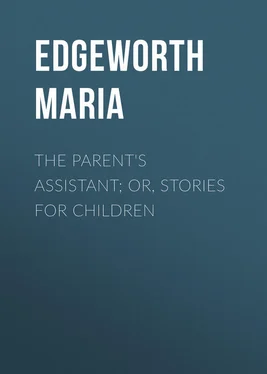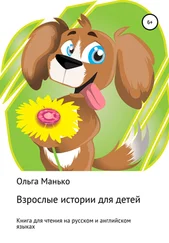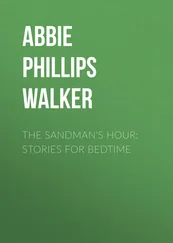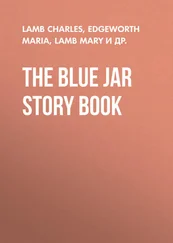Maria Edgeworth - The Parent's Assistant; Or, Stories for Children
Здесь есть возможность читать онлайн «Maria Edgeworth - The Parent's Assistant; Or, Stories for Children» — ознакомительный отрывок электронной книги совершенно бесплатно, а после прочтения отрывка купить полную версию. В некоторых случаях можно слушать аудио, скачать через торрент в формате fb2 и присутствует краткое содержание. Издательство: Иностранный паблик, Жанр: foreign_antique, foreign_prose, foreign_children, на английском языке. Описание произведения, (предисловие) а так же отзывы посетителей доступны на портале библиотеки ЛибКат.
- Название:The Parent's Assistant; Or, Stories for Children
- Автор:
- Издательство:Иностранный паблик
- Жанр:
- Год:неизвестен
- ISBN:нет данных
- Рейтинг книги:5 / 5. Голосов: 1
-
Избранное:Добавить в избранное
- Отзывы:
-
Ваша оценка:
- 100
- 1
- 2
- 3
- 4
- 5
The Parent's Assistant; Or, Stories for Children: краткое содержание, описание и аннотация
Предлагаем к чтению аннотацию, описание, краткое содержание или предисловие (зависит от того, что написал сам автор книги «The Parent's Assistant; Or, Stories for Children»). Если вы не нашли необходимую информацию о книге — напишите в комментариях, мы постараемся отыскать её.
The Parent's Assistant; Or, Stories for Children — читать онлайн ознакомительный отрывок
Ниже представлен текст книги, разбитый по страницам. Система сохранения места последней прочитанной страницы, позволяет с удобством читать онлайн бесплатно книгу «The Parent's Assistant; Or, Stories for Children», без необходимости каждый раз заново искать на чём Вы остановились. Поставьте закладку, и сможете в любой момент перейти на страницу, на которой закончили чтение.
Интервал:
Закладка:
'Nothing can be done without Susan! She always shows us where the nicest flowers are to be found in the lanes and meadows,' said they. 'She must make up the garlands; and she shall be Queen of the May!' exclaimed a multitude of little voices.
'But she does not come!' said Philip.
Rose, who was her particular friend, now came forward to assure the impatient assembly 'that she would answer for it Susan would come as soon as she possibly could, and that she probably was detained by business at home.'
The little electors thought that all business should give way to theirs, and Rose was despatched to summon her friend immediately.
'Tell her to make haste,' cried Philip. 'Attorney Case dined at the Abbey to-day – luckily for us. If he comes home and finds us here, maybe he'll drive us away; for he says this bit of ground belongs to his garden: though that is not true, I'm sure; for Farmer Price knows, and says, it was always open to the road. The Attorney wants to get our playground, so he does. I wish he and his daughter Bab, or Miss Barbara, as she must now be called, were a hundred miles off, out of our way, I know. No later than yesterday she threw down my ninepins in one of her ill-humours, as she was walking by with her gown all trailing in the dust.'
'Yes,' cried Mary, the little primrose-girl, 'her gown is always trailing. She does not hold it up nicely, like Susan; and with all her fine clothes she never looks half so neat. Mamma says she wishes I may be like Susan, when I grow up to be a great girl, and so do I. I should not like to look conceited as Barbara does, if I was ever so rich.'
'Rich or poor,' said Philip, 'it does not become a girl to look conceited, much less bold , as Barbara did the other day, when she was at her father's door without a hat upon her head, staring at the strange gentleman who stopped hereabout to let his horse drink. I know what he thought of Bab by his looks, and of Susan too; for Susan was in her garden, bending down a branch of the laburnum tree, looking at its yellow flowers, which were just come out; and when the gentleman asked her how many miles it was from Shrewsbury, she answered him so modest! – not bashful, like as if she had never seen nobody before – but just right: and then she pulled on her straw hat, which was fallen back with her looking up at the laburnum, and she went her ways home; and the gentleman says to me, after she was gone, "Pray, who is that neat modest girl – ?" But I wish Susan would come,' cried Philip, interrupting himself.
Susan was all this time, as her friend Rose rightly guessed, busy at home. She was detained by her father's returning later than usual. His supper was ready for him nearly an hour before he came home; and Susan swept up the ashes twice, and twice put on wood to make a cheerful blaze for him; but at last, when he did come in, he took no notice of the blaze or of Susan; and when his wife asked him how he did, he made no answer, but stood with his back to the fire, looking very gloomy. Susan put his supper upon the table, and set his own chair for him; but he pushed away the chair and turned from the table, saying – 'I shall eat nothing, child! Why have you such a fire to roast me at this time of the year?'
'You said yesterday, father, I thought, that you liked a little cheerful wood fire in the evening; and there was a great shower of hail; your coat is quite wet, we must dry it.'
'Take it, then, child,' said he, pulling it off – 'I shall soon have no coat to dry – and take my hat too,' said he, throwing it upon the ground.
Susan hung up his hat, put his coat over the back of a chair to dry, and then stood anxiously looking at her mother, who was not well; she had this day fatigued herself with baking; and now, alarmed by her husband's moody behaviour, she sat down pale and trembling. He threw himself into a chair, folded his arms, and fixed his eyes upon the fire.
Susan was the first who ventured to break silence. Happy the father who has such a daughter as Susan! – her unaltered sweetness of temper, and her playful, affectionate caresses, at last somewhat dissipated her father's melancholy.
He could not be prevailed upon to eat any of the supper which had been prepared for him; however, with a faint smile, he told Susan that he thought he could eat one of her guinea-hen's eggs. She thanked him, and with that nimble alacrity which marks the desire to please, she ran to her neat chicken-yard; but, alas! her guinea-hen was not there – it had strayed into the attorney's garden. She saw it through the paling, and timidly opening the little gate, she asked Miss Barbara, who was walking slowly by, to let her come in and take her guinea-hen. Barbara, who was at this instant reflecting, with no agreeable feelings, upon the conversation of the village children, to which she had recently listened, started when she heard Susan's voice, and with a proud, ill-humoured look and voice, refused her request.
'Shut the gate,' said Barbara, 'you have no business in our garden; and as for your hen, I shall keep it; it is always flying in here and plaguing us, and my father says it is a trespasser; and he told me I might catch it and keep it the next time it got in, and it is in now.' Then Barbara called to her maid, Betty, and bid her catch the mischievous hen.
'Oh, my guinea-hen! my pretty guinea-hen!' cried Susan, as they hunted the frightened, screaming creature from corner to corner.
'Here we have got it!' said Betty, holding it fast by the legs.
'Now pay damages, Queen Susan, or good-bye to your pretty guinea-hen,' said Barbara, in an insulting tone.
'Damages! what damages?' said Susan; 'tell me what I must pay.' 'A shilling,' said Barbara. 'Oh, if sixpence would do!' said Susan; 'I have but sixpence of my own in the world, and here it is.' 'It won't do,' said Barbara, turning her back. 'Nay, but hear me,' cried Susan; 'let me at least come in to look for its eggs. I only want one for my father's supper; you shall have all the rest.' 'What's your father, or his supper to us? is he so nice that he can eat none but guinea-hen's eggs?' said Barbara. 'If you want your hen and your eggs, pay for them, and you'll have them.' 'I have but sixpence, and you say that won't do,' said Susan, with a sigh, as she looked at her favourite, which was in the maid's grasping hands, struggling and screaming in vain.
Susan retired disconsolate. At the door of her father's cottage she saw her friend Rose, who was just come to summon her to the hawthorn bush.
'They are all at the hawthorn, and I am come for you. We can do nothing without you , dear Susan,' cried Rose, running to meet her, at the moment she saw her. 'You are chosen Queen of the May – come, make haste. But what is the matter? why do you look so sad?'
'Ah!' said Susan, 'don't wait for me; I can't come to you, but,' added she, pointing to the tuft of double cowslips in the garden, 'gather those for poor little Mary; I promised them to her, and tell her the violets are under a hedge just opposite the turnstile, on the right as we go to church. Good-bye! never mind me; I can't come – I can't stay, for my father wants me.'
'But don't turn away your face; I won't keep you a moment; only tell me what's the matter,' said her friend, following her into the cottage.
'Oh, nothing, not much,' said Susan; 'only that I wanted the egg in a great hurry for father, it would not have vexed me – to be sure I should have clipped my guinea-hen's wings, and then she could not have flown over the hedge; but let us think no more about it, now,' added she, twinkling away a tear.
When Rose, however, learnt that her friend's guinea-hen was detained prisoner by the attorney's daughter, she exclaimed, with all the honest warmth of indignation, and instantly ran back to tell the story to her companions.
Читать дальшеИнтервал:
Закладка:
Похожие книги на «The Parent's Assistant; Or, Stories for Children»
Представляем Вашему вниманию похожие книги на «The Parent's Assistant; Or, Stories for Children» списком для выбора. Мы отобрали схожую по названию и смыслу литературу в надежде предоставить читателям больше вариантов отыскать новые, интересные, ещё непрочитанные произведения.
Обсуждение, отзывы о книге «The Parent's Assistant; Or, Stories for Children» и просто собственные мнения читателей. Оставьте ваши комментарии, напишите, что Вы думаете о произведении, его смысле или главных героях. Укажите что конкретно понравилось, а что нет, и почему Вы так считаете.












